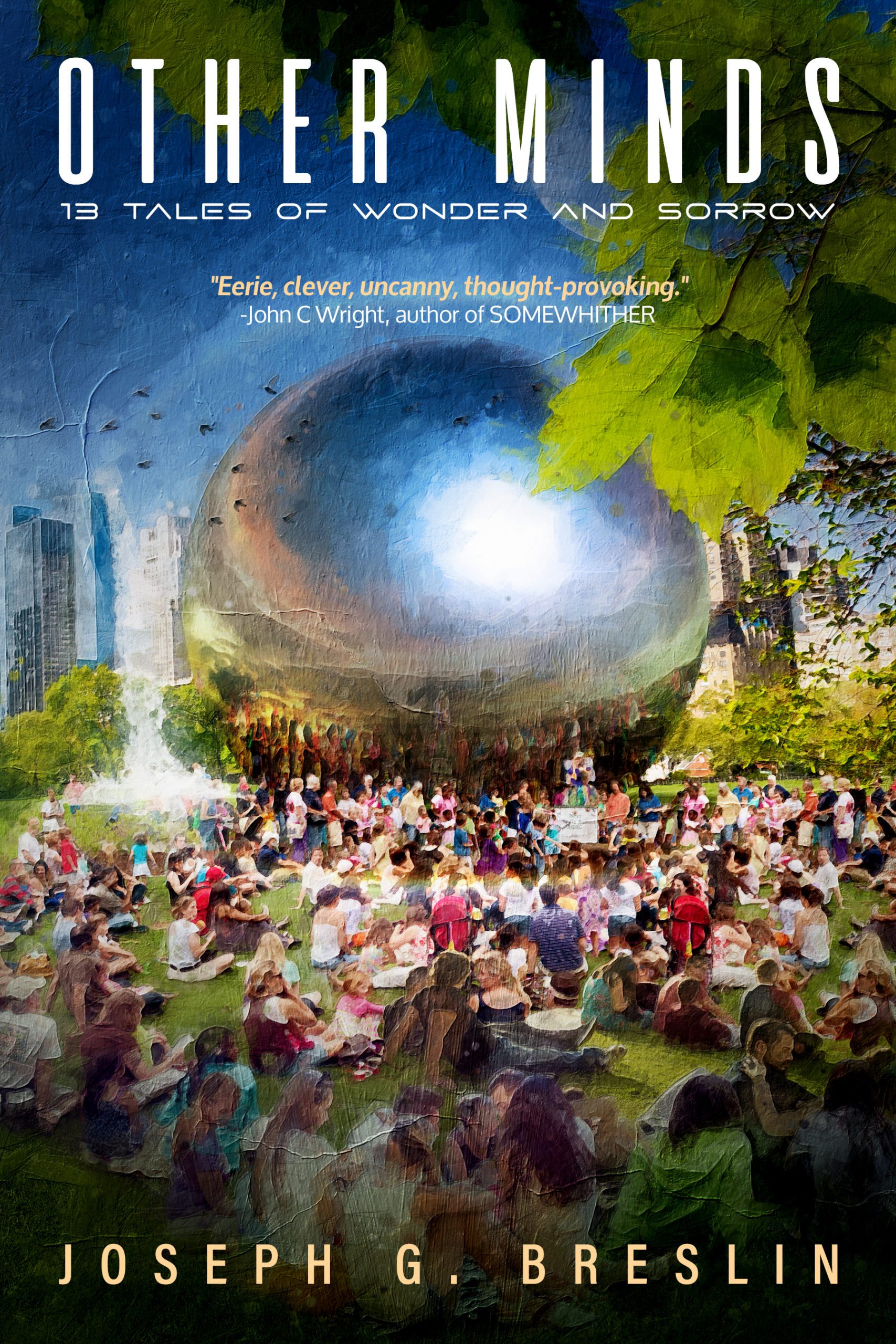 Samuel Johnson claimed the two most engaging powers of an author are to make new things familiar and familiar things new. Heights fifth-grade teacher, Joe Breslin, exercises both powers fully in his new collection of short stories: Other Minds. Thirteen stories, most short enough to read in a single sitting, invite us into time and space that is, at first, either mundanely familiar—a campus common room or a parked car on the steep streets of San Francisco—or jarringly foreign—an astronaut past the edge of the solar system or a spaceship full of hopeful colonists abandoning earth to seek a new planet on which to begin again. In all of their diversity, the collection fits together like a mosaic where each small piece reflects the beauty of the pieces around it and creates a shimmering whole, not woven as tightly as a tapestry, but leaving us with images and characters to take into our own lives.
Samuel Johnson claimed the two most engaging powers of an author are to make new things familiar and familiar things new. Heights fifth-grade teacher, Joe Breslin, exercises both powers fully in his new collection of short stories: Other Minds. Thirteen stories, most short enough to read in a single sitting, invite us into time and space that is, at first, either mundanely familiar—a campus common room or a parked car on the steep streets of San Francisco—or jarringly foreign—an astronaut past the edge of the solar system or a spaceship full of hopeful colonists abandoning earth to seek a new planet on which to begin again. In all of their diversity, the collection fits together like a mosaic where each small piece reflects the beauty of the pieces around it and creates a shimmering whole, not woven as tightly as a tapestry, but leaving us with images and characters to take into our own lives.
Each individual story pulls the reader in by small, vivid glimpses. In paragraphs that read rapidly, Breslin writes characters we sympathize with, sometimes rather unexpectedly, like a robot programmed to care for bees. As we watch the characters experiment with time, examine their own choices, or see themselves better, we’re never presented with anyone two-dimensional. The people I met in this collection stayed with me and reminded me that, even when I disagree with the characters’ choices, I can deeply understand their motivations.
And these characters walk through genres as easily as they traverse through time, space, and fantasy. Breslin is a clever author with names, hiding much in plain sight. The character who switches places with another man hard on his luck is known only as Prince. Though the pauper is never called that, we feel the resonance and allusions to that other story pulsing in the background. Recasting these myths helps us to see them anew. Calling the less intelligent second-class citizens of a new regime “bean brains” conjures up first the insulting side, but only later plants the seed that can lead to a beanstalk of life-changing proportions. The seeds are there for those who can see them. The puzzling relationship between author and character is explored through the lens of a narrator with the last name Escher, conjuring the famous images of multiple interpretations.
The imagined technologies in Breslin’s stories–and there are many introduced in 300 pages– remain believable and work well as an analogue to the more magical stories. Whether or not they’re true fairy tales, the reader is pulled along realizing that magic and technology have at least one thing in common: they both grant our wishes with less work or friction. Breslin employs both well to explore the limits of the human condition and the ways we try to push beyond them or come to accept them.
This book clearly grows from a lifetime of reading. Even in the acknowledgements, it’s clear that the author has apprenticed under many great authors. This makes the book fun reading for those of us further along in our reading. We’ll see snippets of Dante, allusions to the New Testament, and homage to Bradbury. But it doesn’t just make the book more fun to read (or re-read); it places it in conversation with the great books and gives us another angle from which to observe other great authors who have influenced us.
It was by the end of the book that I realized it was a mosaic, showing us a complete picture through smaller fragments. For all the fantasy, sci-fi, or unexpected elements introduced, we nonetheless see our own home, earth, through different eyes. We are like the adventurer Chesterton posits in Orthodoxy, setting out on an adventure and landing on beautiful shores – only to realize it is our own home. We are like the Samuel Johnson remark, fulfilled. We have learned, in the experience, to see the familiar differently, to enjoy it more, and to appreciate it more deeply.
I hope I’m not encouraging you to read Joe’s stories because they will teach you lessons. I am warning you that they will not just entertain you, though. They will change you, and that’s a lesson in itself.
Ultimately, this collection ratifies C.S. Lewis’s thoughts on why we read fiction. It prevents us from inhabiting “a tiny world.” Breslin challenges us to see the world we inhabit in all its complexity and texture. As Lewis continues:
Literary experience heals the wound, without undermining the privilege, of individuality….. in reading great literature I become a thousand men and yet remain myself. Like a night sky in the Greek poem, I see with a myriad eyes, but it is still I who see. Here, as in worship, in love, in moral action, and in knowing, I transcend myself; and am never more myself than when I do.
I invite you to see with more eyes than your own in this book.
Other Minds is available now at joeybreslinwrites.com.



